Late surges key to Kittel's Tour de France sprint success
Lefevere guarantees Kittel the Tour de France sprint leadership at Quick-Step for 2018
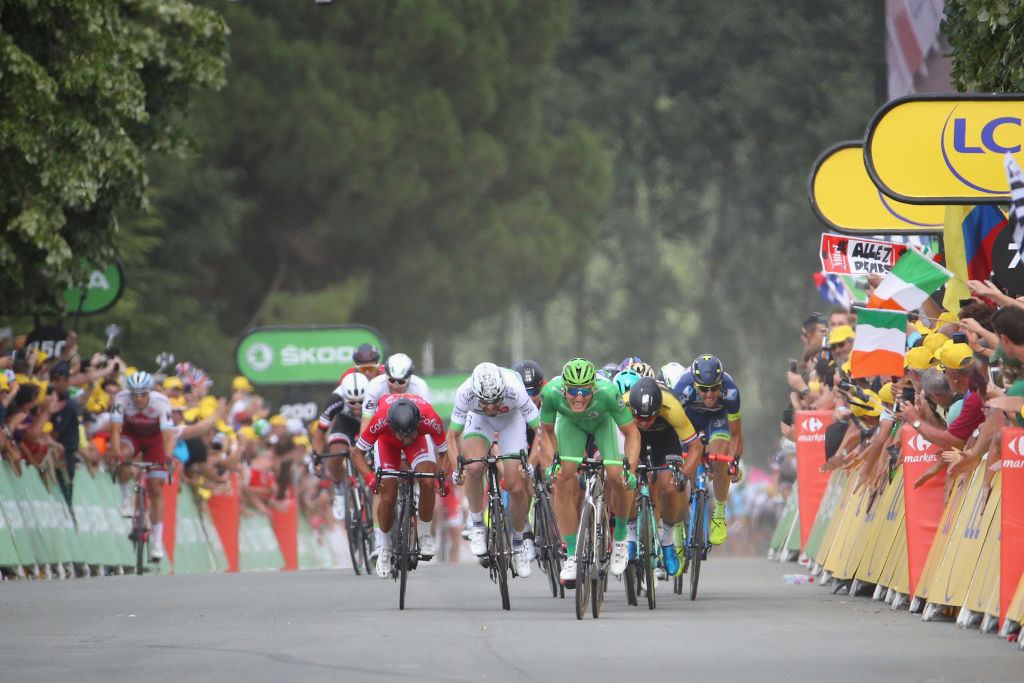
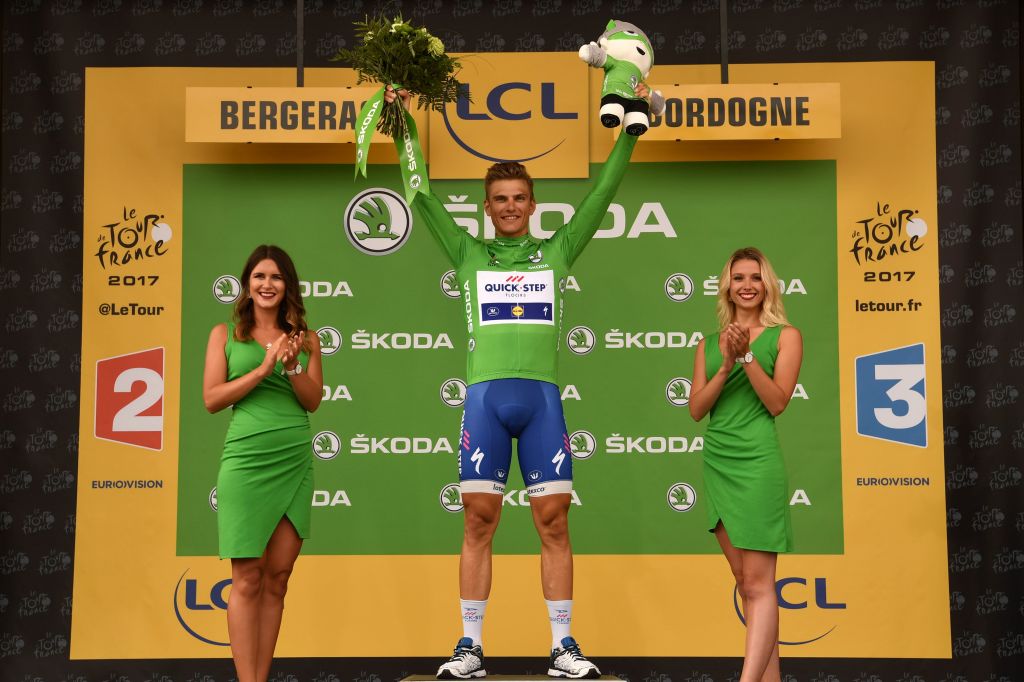
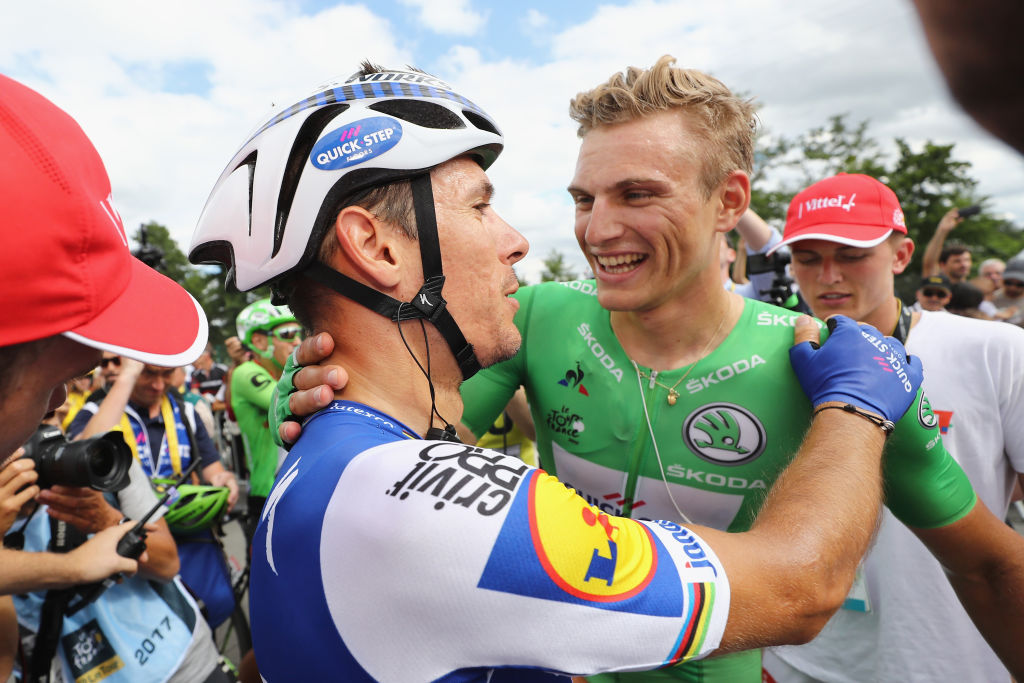
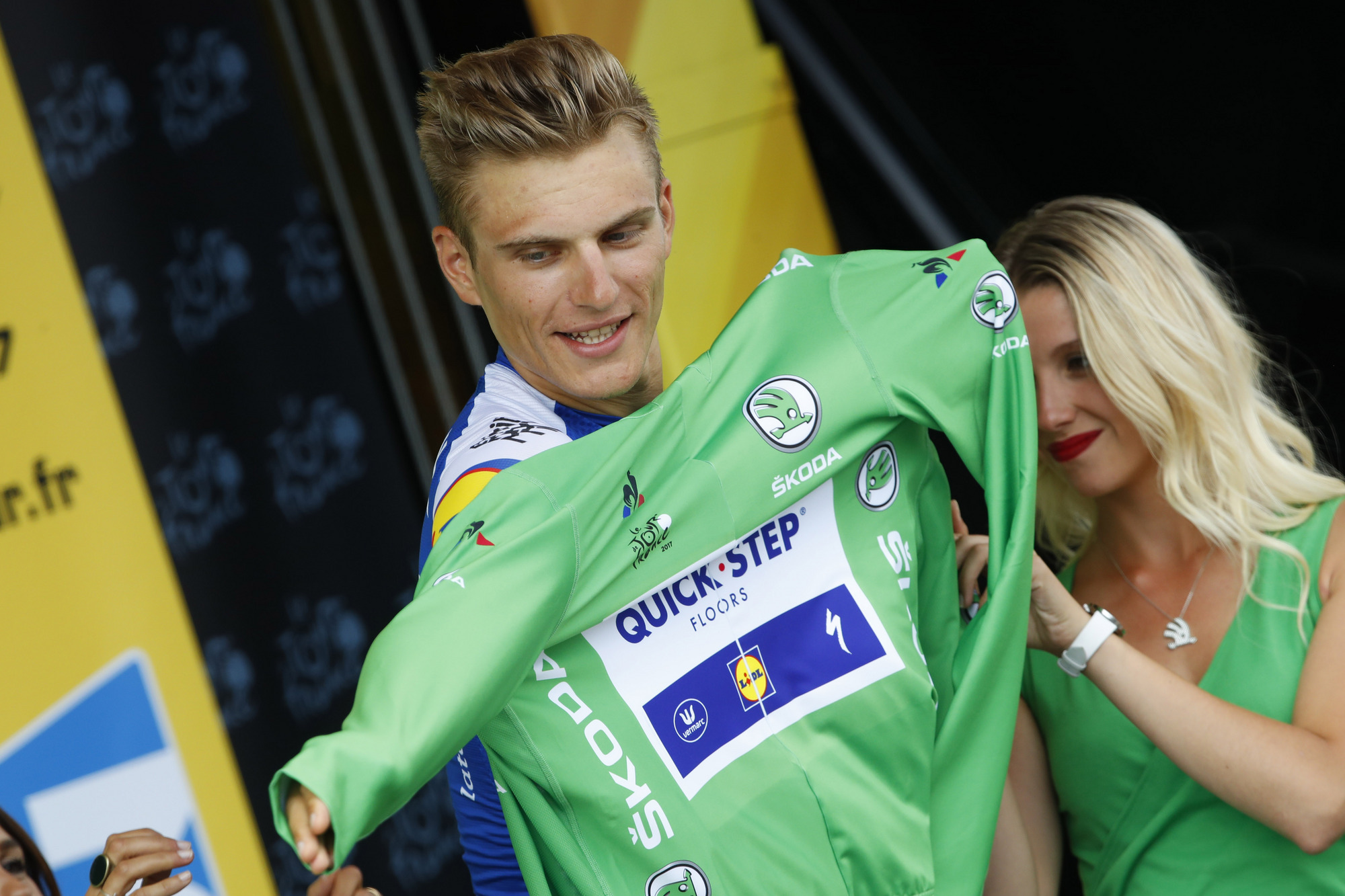
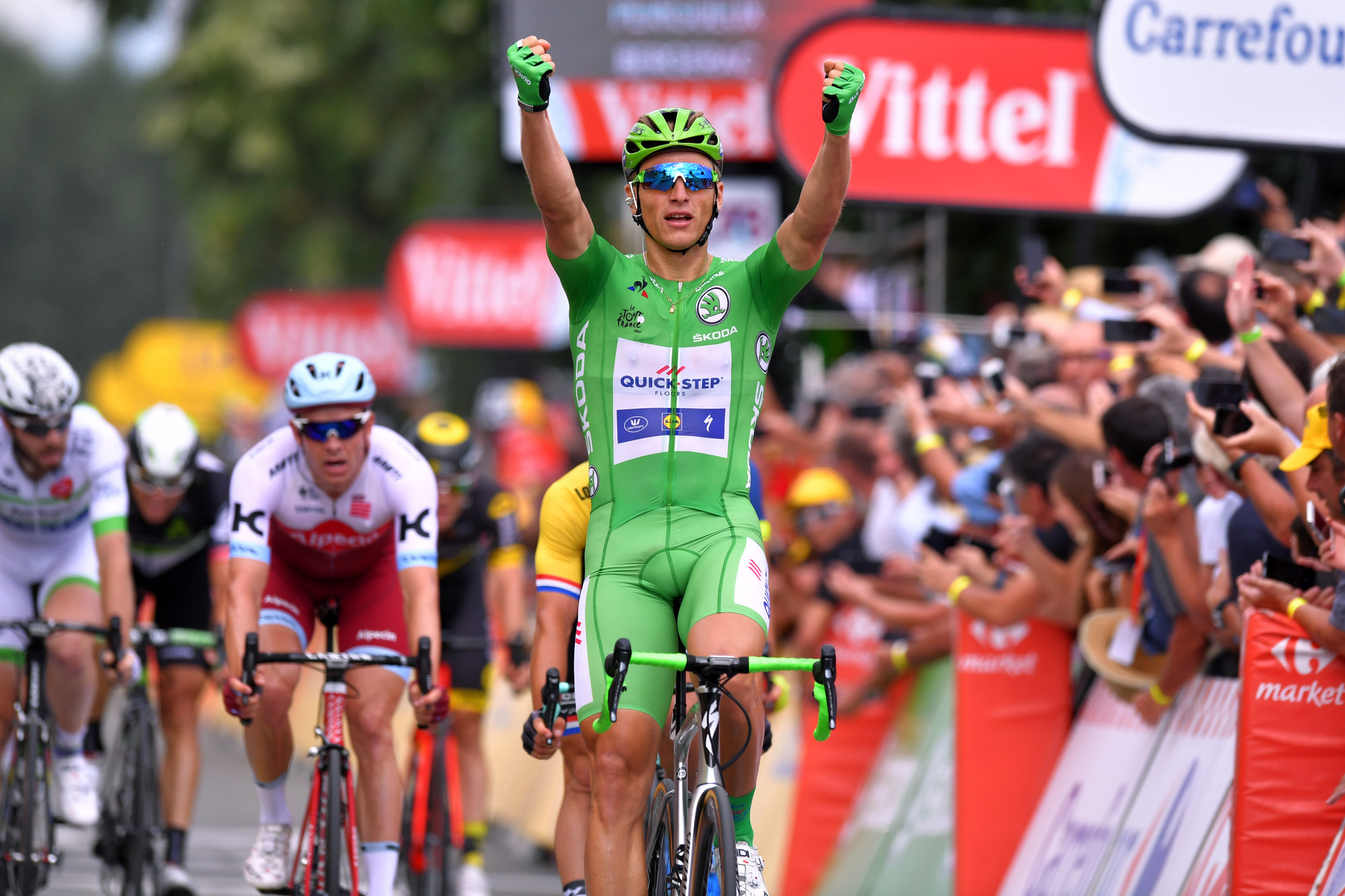
Marcel Kittel nabbed his fourth stage victory of the 2017 Tour de France in Bergerac on Monday, confirming that his new strategy of coming from behind is the best way for the powerful German to win the ever-more hectic and ever-more dangerous sprints.
Kittel seemed to fortuitously fight his way from behind when he won in Liège and Troyes, and now Quick-Step Floors team manager Patrick Lefevere has confirmed to Cyclingnews that Kittel has specifically asked the team to set him up for a late charge to the line.
Kittel's success with this method marks a further evolution in sprinting tactics at the Tour de France. Long lead-out trains are no longer effective as no one team can control the front of the bunch long enough. Kittel so far avoided any of the cutthroat fighting for the best that his rivals have endured, choosing instead to sit back and wait for an opening to present itself.
"He prefers to come from behind, that's his wish. He doesn't want the team to lead him out, he wants to come from the second line," Lefevere revealed to Cyclingnews.
"He knows that there's a risk of being blocked in. It happened on the day when Sagan and Cavendish clashed and we missed out. But we're happy with the change in lead-out tactics. He asked for just one guy to stay with him and bring him to be where wants to be with a kilometre to go. Fabio Sabatini does that."
Kittel has always preferred a 'clean' sprint so that he can use his muscular physique to the maximum and produce a high burst of power and speed. He was often left frustrated when Mark Cavendish, Nacer Bouhanni and others fought for the wheels, rubbed shoulders at 70 kilometres per hour, and zigzagged across the road.
He is happy to have found an alternative sprint strategy that works.
Get The Leadout Newsletter
The latest race content, interviews, features, reviews and expert buying guides, direct to your inbox!
"I think it makes a big difference if you can be relaxed but confident in a sprint," Kittel explained after his fourth victory in Bergerac.
"If you know you have to fight for it then maybe you panic. Now I can wait for the right moment. I have that luxury and so I'm enjoying it so much more."
Kittel indicated that his build-up to this year's Tour de France was decided after considering the mistakes of 2016 when he won just one sprint at the Tour and was left frustrated as Cavendish dominated. This year he has raced less and trained more, including a month at altitude in Colorado after the Tour of California.
"This year I think he's fresher. He did a month in Colorado, so next year everyone will go to Colorado," Lefevere joked.
"He didn't race much to be fresh for the Tour de France. He preferred not to do the Dauphiné or the Tour de Suisse. He did a month in the USA and then the Ster ZLM race."
Keeping both Kittel and Gaviria happy in 2018
Kittel has yet to confirm if he will stay at Quick-Step Floors, as Lefevere continues to try to close on a sponsorship deal that will secure the long-term future of his team. However, the experienced Belgian manager is keen to keep Kittel and Fernando Gaviria.
Having two of the best sprinters in the world could be problematic for any team, but Kittel has now done more than enough to secure his role as the team's main sprinter for the Tour de France and to earn a lucrative contract for 2018.
"I've always had problems like this. A winning team always costs money if you win a lot," Lefevere said with a laugh. "It's possible to keep both Kittel and Gaviria. There are 300 race days on the calendar and we do three Grand Tours. We can't do the season with just one sprinter, you need two sprinters."
It will be some time, however, before Gaviria - the winner of four stages and the points classification in the Giro d'Italia - stars in this key role at the Tour de France.
"Two sprinters together at the Tour de France is impossible. Gaviria is still seven years younger than Marcel Kittel, so he can do the Giro [in 2018]."
Lefevere insisted there would be no problems between the riders with that decision.
"There's only one boss in the team and that's me," he concluded.

Stephen is one of the most experienced member of the Cyclingnews team, having reported on professional cycling since 1994. He has been Head of News at Cyclingnews since 2022, before which he held the position of European editor since 2012 and previously worked for Reuters, Shift Active Media, and CyclingWeekly, among other publications.